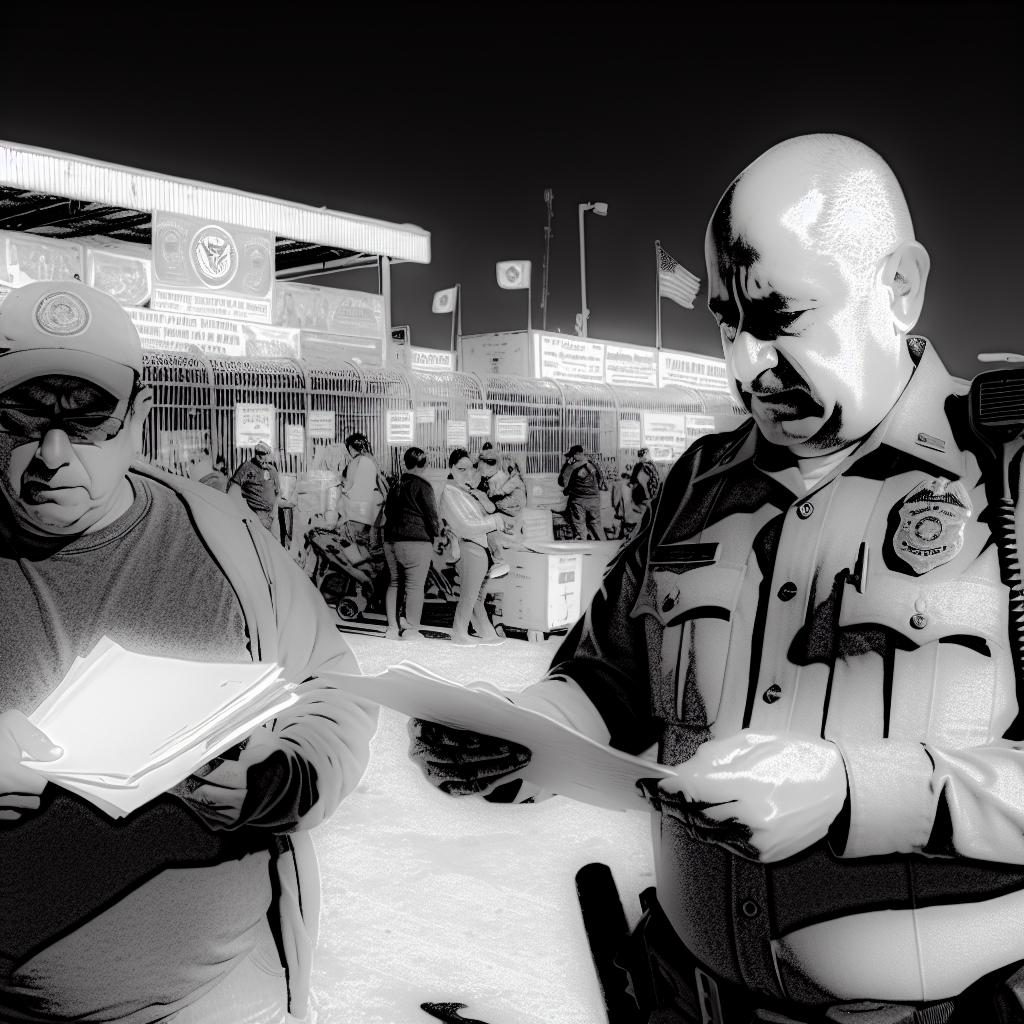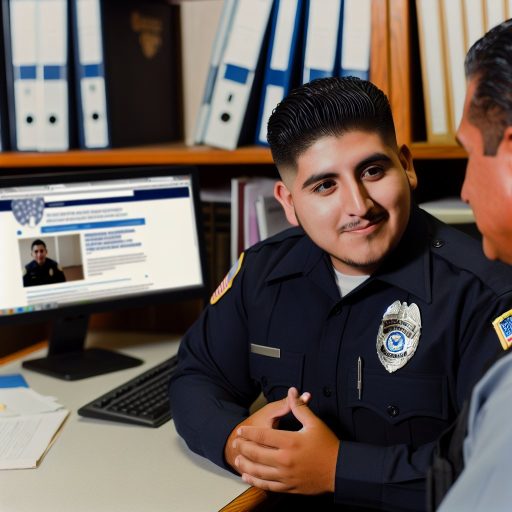Introduction
Individuals aspiring to become an ICE agent must understand the significance of possessing specific skills to excel in this challenging career.
Success in this role requires a unique skill set that goes beyond basic qualifications.
Experience in Law Enforcement
Having prior experience in law enforcement is crucial for individuals who aspire to become successful ICE agents.
This experience provides a solid foundation and understanding of the protocols and procedures within ICE.
Here are some key points to consider:
- Understanding Protocols: Individuals with a background in law enforcement already have experience following protocols and guidelines in high-pressure situations.
- Familiarity with Procedures: Law enforcement professionals are well-versed in handling investigations, conducting interviews, and making arrests.
- Knowledge of Criminal Justice System: With experience in law enforcement, individuals are familiar with the criminal justice system and legal processes.
- Effective Communication Skills: Communication is key in law enforcement, and individuals with prior experience in this field have honed their communication skills.
- Adaptability and Resilience: Law enforcement professionals are trained to handle unpredictable and high-stress situations.
Overall, having a background in law enforcement can greatly enhance an individual’s effectiveness and success as an ICE agent.
It provides the necessary skills, knowledge, and mindset to navigate the complex and demanding world of immigration enforcement.
Communication Skills
Emphasize the significance of strong communication skills in working with diverse populations.
Discuss how effective communication can help in building relationships and gathering information.
Communication skills are essential for ICE agents due to the diverse populations they interact with.
Strong communication skills enable agents to effectively communicate with individuals from different cultural backgrounds.
Building relationships with community members is crucial for gaining trust and cooperation.
ICE agents must be able to articulate their intentions clearly and respectfully to establish rapport and foster a positive working relationship.
Effective communication also plays a vital role in gathering information for investigations.
ICE agents need to ask relevant questions, actively listen to responses, and convey information in a way that encourages cooperation and collaboration.
ICE agents often work in high-stress situations where clear and concise communication is key to de-escalating conflicts.
Agents must be able to communicate calmly and effectively to diffuse tense situations and ensure the safety of all individuals involved.
In addition to verbal communication, written communication skills are also important for ICE agents.
Agents need to document their interactions, write reports, and communicate information effectively to colleagues and supervisors.
Gain More Insights: DEA Agent’s Role in International Drug Enforcement
Transform Your Career Today
Unlock a personalized career strategy that drives real results. Get tailored advice and a roadmap designed just for you.
Start NowPhysical Fitness
As an ICE agent, the physical demands are intense and require a high level of fitness to effectively carry out duties.
Addressing the Physical Demands
ICE agents must be prepared for physically demanding tasks such as apprehending suspects, conducting raids, and engaging in defensive tactics.
These tasks can require agents to sprint, climb, jump, and perform other strenuous activities at a moment’s notice.
Being physically fit is crucial in these situations to ensure the safety of both the agent and those around them.
Importance of Maintaining Physical Fitness
Maintaining a high level of physical fitness is not just important for performing well in high-stress situations, but also for preventing injuries.
Being physically fit allows ICE agents to react quickly and effectively in dangerous situations, potentially saving lives.
Additionally, physical fitness can boost overall health, mental well-being, and resilience to stress, all of which are crucial for an ICE agent’s job performance.
Regular exercise and strength training can help improve endurance, agility, flexibility, and strength, all of which are essential for an ICE agent’s duties.
Physical fitness also plays a role in preventing burnout and improving overall job satisfaction for ICE agents.
Delve into the Subject: DEA Agent’s Role in Border Security
Cultural Awareness
Understanding the nuances of different cultures is essential for ICE agents.
Highlight the need for cultural awareness in dealing with individuals from diverse backgrounds.
Discuss how cultural sensitivity can foster trust and rapport with communities.
Recognize the importance of addressing cultural differences in a respectful and informed manner.
Training on cultural awareness can help agents navigate complex situations effectively.
Embracing diversity enhances communication and collaboration in ICE operations.
- Highlight the need for cultural awareness in dealing with individuals from diverse backgrounds.
- Discuss how cultural sensitivity can foster trust and rapport with communities.
- Recognize the importance of addressing cultural differences in a respectful and informed manner.
- Training on cultural awareness can help agents navigate complex situations effectively.
- Embracing diversity enhances communication and collaboration in ICE operations.
You Might Also Like: How CBP Officers Handle Emergency Situations

Critical Thinking
Having strong critical thinking skills is crucial for ICE agents.
They need to make quick and informed decisions in high-pressure situations.
ICE agents often encounter complex and challenging scenarios.
Transform Your Career Today
Unlock a personalized career strategy that drives real results. Get tailored advice and a roadmap designed just for you.
Start NowThey must assess a variety of factors to determine the best course of action.
For example, when apprehending suspects at a border crossing, ICE agents must analyze the behavior of individuals.
They must assess potential threats and make split-second decisions.
This is essential to protect themselves and others.
Additionally, when conducting investigations into human trafficking or drug smuggling operations, ICE agents must carefully analyze evidence.
They evaluate witness testimonies and identify key information.
This process is necessary to build a strong case.
Having the ability to think critically allows ICE agents to navigate difficult situations effectively.
They can assess risks and make decisions that have a significant impact on national security.
Uncover the Details: Public Safety Officer Training: What to Expect
Teamwork and Collaboration
Working effectively within a team is crucial for ICE agents to achieve their mission objectives.
- ICE agents often work in teams to execute complex operations with precision and efficiency.
- Teamwork fosters communication, trust, and a shared sense of responsibility among agents.
- Collaboration with other law enforcement agencies enhances the effectiveness of ICE operations.
- Sharing information and resources with other departments leads to more comprehensive and successful missions.
- ICE agents must be able to work seamlessly with colleagues from different backgrounds and skill sets.
Stress the significance of working effectively within a team
ICE agents rely on each other to navigate challenging situations and make quick, informed decisions.
- Team members provide support, guidance, and expertise to one another in high-pressure scenarios.
- Effective teamwork can enhance morale and job satisfaction among ICE agents.
- Collaborative efforts within a team can lead to innovative solutions and improved outcomes.
- ICE agents who work well together are more likely to succeed in their missions and protect the public.
Collaboration with Law Enforcement Agencies
ICE agents often collaborate with federal, state, and local law enforcement agencies to address complex challenges.
- Working with other agencies allows ICE to leverage their combined resources and expertise.
- Collaboration enables a coordinated approach to investigations, enforcement actions, and outreach efforts.
- Information sharing with other departments helps ICE stay informed about emerging threats and trends.
- Joint operations with other agencies can enhance the impact and reach of ICE’s enforcement activities.
- Collaborating with external partners strengthens relationships and fosters a more unified law enforcement community.
Key Skills for Success as an ICE Agent
Excellent communication skills help in interacting with diverse individuals effectively.
Physical fitness is essential for performing duties that require stamina and agility.
Critical thinking and problem-solving skills are crucial for making quick decisions in high-pressure situations.
Attention to detail is necessary when gathering and analyzing information for accurate assessments.
Adaptability is a vital skill for handling unexpected challenges and changes effectively.
Moral integrity and ethical judgment are fundamental for upholding the laws and rights of individuals.
Aspiring ICE agents should focus on developing and enhancing these skills for a successful career in law enforcement.
Transform Your Career Today
Unlock a personalized career strategy that drives real results. Get tailored advice and a roadmap designed just for you.
Start NowAdditional Resources
10 Types of Homeland Security Careers Worth Considering : SLU …
Criminal Justice, Bachelor of Science | St. John’s University




